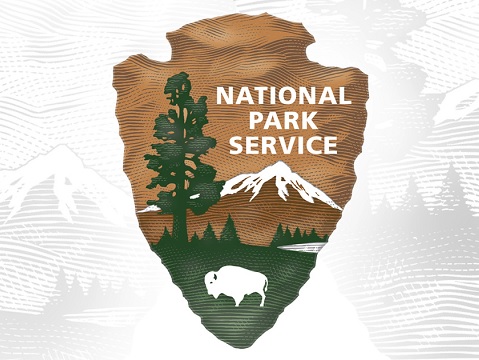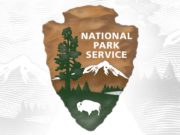PDF of coalition letter available here
The Honorable Raúl Grijalva
The Honorable Rob Bishop
Dear Chairman Grijalva and Ranking Member Bishop:
We, the undersigned coalition of organizations, write to urge the House Natural Resources Committee to secure a commitment from the Acting Director of the National Park Service (NPS), Dan Smith, to withdraw proposed rules restricting protesting and demonstration activities on the National Mall, on publicly accessible grounds surrounding the White House, and on other NPS areas in Washington, DC. We urge the Committee to inquire about the status of the rulemaking during the April 3rd oversight hearing and to press the Acting Director of the NPS to withdraw this unconstitutional proposal.
Our organizations do not agree on all issues, but one principle we unreservedly support is our right to gather together to express ourselves. The quintessential locations for these expressive gatherings in the United States are the National Mall and the public spaces surrounding the White House. These spaces are special to American public life. Their use for protests and demonstrations are “historic in our democratic society, and one of its cardinal values.”[1] Yet, NPS, in a recent notice of proposed rulemaking, is considering restricting our rights of access to these spaces and limiting our ability to gather spontaneously to make our voices heard.[2] We are very concerned that, should these rules go into effect, they will chill speech and harm our national discourse.
The proposed rules raise a number of First Amendment concerns. Three of the proposals stand out as particularly troubling and worthy of close attention from the Committee.
The NPS proposal would open the doors to charging fees for demonstrations and raises significant First Amendment concerns. NPS is considering charging fees for permitted demonstrations, activities occupying the height of First Amendment protection including, for example, “picketing, speechmaking, marching, [and] holding vigils.”[3] These fees cannot constitutionally be imposed. Permits for constitutionally-protected assemblies and demonstrations are not issued at NPS’s discretion. They are only allowed for the limited purposes of protecting the government’s legitimate interests in enforcing appropriate content- neutral limitations of time, place and manner, allocating time and space among competing applicants, and assigning appropriate resources to an event. Moreover, NPS’s statutory authority for imposing fees on demonstrations is questionable. A statute does allow NPS to recover costs associated with “special use permits,”[4] but “special use” is not defined. Historically, NPS has recovered costs for permitted “special events,” which include sporting events, pageants, ceremonies, and festivals that are not demonstrations.[5] For constitutional purposes, demonstrations in traditional public forums are not a “special use” but rather a constitutionally guaranteed use. “Freedom of speech, freedom of the press, freedom of religion are available to all, not merely to those who can pay their own way.”[6] NPS cannot balance its budget or otherwise reduce its costs by charging people seeking to exercise their First Amendment rights.
The NPS proposal would close 80 percent of the White House sidewalk and violate a previous court order. According to the new proposal, NPS plans to close 20 feet of the 25-foot- wide White House sidewalk, leaving only a five-foot portion of the sidewalk adjacent to Pennsylvania Avenue open. This area, colloquially referred to as the “White House sidewalk,” has long been recognized for its historic significance in American culture. Numerous demonstrations, from the suffragette protests 100 years ago to recent demonstrations for immigration reform, have taken place on the White House sidewalk. Unlike any other place in our country, the White House sidewalk allows the public to express its views directly to the President. Despite this vibrant and meaningful history, NPS has proposed to close most of this area without providing any justification whatsoever, which it cannot constitutionally do. The government may not “destroy the ‘public forum’ status of streets and parks which have historically been public forums,” nor transform their character via statutory classification.[7] If Congress cannot change the character of a public forum by statute, NPS certainly cannot do so by regulation. Reducing the available space on the White House sidewalk to a five-foot sliver would transform it from a quintessential public forum to an almost-entirely unavailable space and would be clearly unconstitutional.
The NPS proposal would limit spontaneous demonstrations and stifle protests and freedom of speech. Current regulations provide that NPS will accommodate spontaneous demonstrations if necessary resources and personnel “can reasonably be made available.”[8] Under the proposed regulations, NPS would only “reasonably seek to accommodate spontaneous demonstrations … provided the NPS has the resources and personnel available to manage the activity.”[9] By replacing the language about making resources available with language about resources that are available, the amendment suggests that NPS will not seek to make necessary resources available. In our view, this would be unconstitutional. “Timeliness is essential to effective dissent. Delay may stifle protest as effectively as outright censorship.”[10] The right to protest now in response to unfolding events is a key part of freedom of speech and cannot be infringed. NPS’s proposal would impede spontaneous expression essential to public discourse, particularly in the age of instant communication.
For more than a century, members of the public have marched, picketed, protested, and exercised their rights to peacefully assemble and petition their government in the nation’s capital. The First Amendment enshrines these freedoms and guarantees that we, the citizens and people of this country, can express our views both openly and freely. The NPS rule would undermine these rights and put unconstitutional limitations on these activities. We urge the Committee to inquire about the status of the proposed rulemaking at the upcoming hearing and to secure a commitment from the Acting Director of the NPS to withdraw this unconstitutional proposal.
Thank you for your attention to this matter. If you have any questions, please contact Kathleen Ruane at kruane@aclu.org.
Sincerely,
American Civil Liberties Union
American Civil Liberties Union of the District of Columbia
Charles Koch Institute
Institute for Free Speech
March for Life Education and Defense Fund
NAACP
National Mall Coalition
Public Citizen
cc: Members of the House Committee on Natural Resources
Read the full coalition letter here.
[1] See A Quaker Action Grp. v. Morton, 516 F. 2d 717, 724 (D.C. Cir. 1975).
[2] Special Regulations, Areas of the National Park System, National Capital Region, Special Events and Demonstrations, 83 Fed. Reg. 40460 (proposed Aug. 15, 2018) (to be codified at 36 CFR Part 7).
[3] 36 C.F.R. § 7.96(g)(1).
[4] 54 U.S.C. § 103104.
[5] 83 Fed. Reg. 40465.
[6] Murdock v. Pennsylvania, 319 U.S. 105 (1943).
[7] United States v. Grace, 461 U.S. 171, 180 (1983) (quoting United States Postal Service v. Greenburgh Civic Associations, 453 U.S. 114, 133 (1981)).
[8] 36 C.F.R. §7.96(g)(3).
[9] 83 Fed. Reg. at 40475 (emphasis added).
[10] Women Strike for Peace v. Hickel, 420 F.2d 597, 605 (D.C. Cir. 1969).














